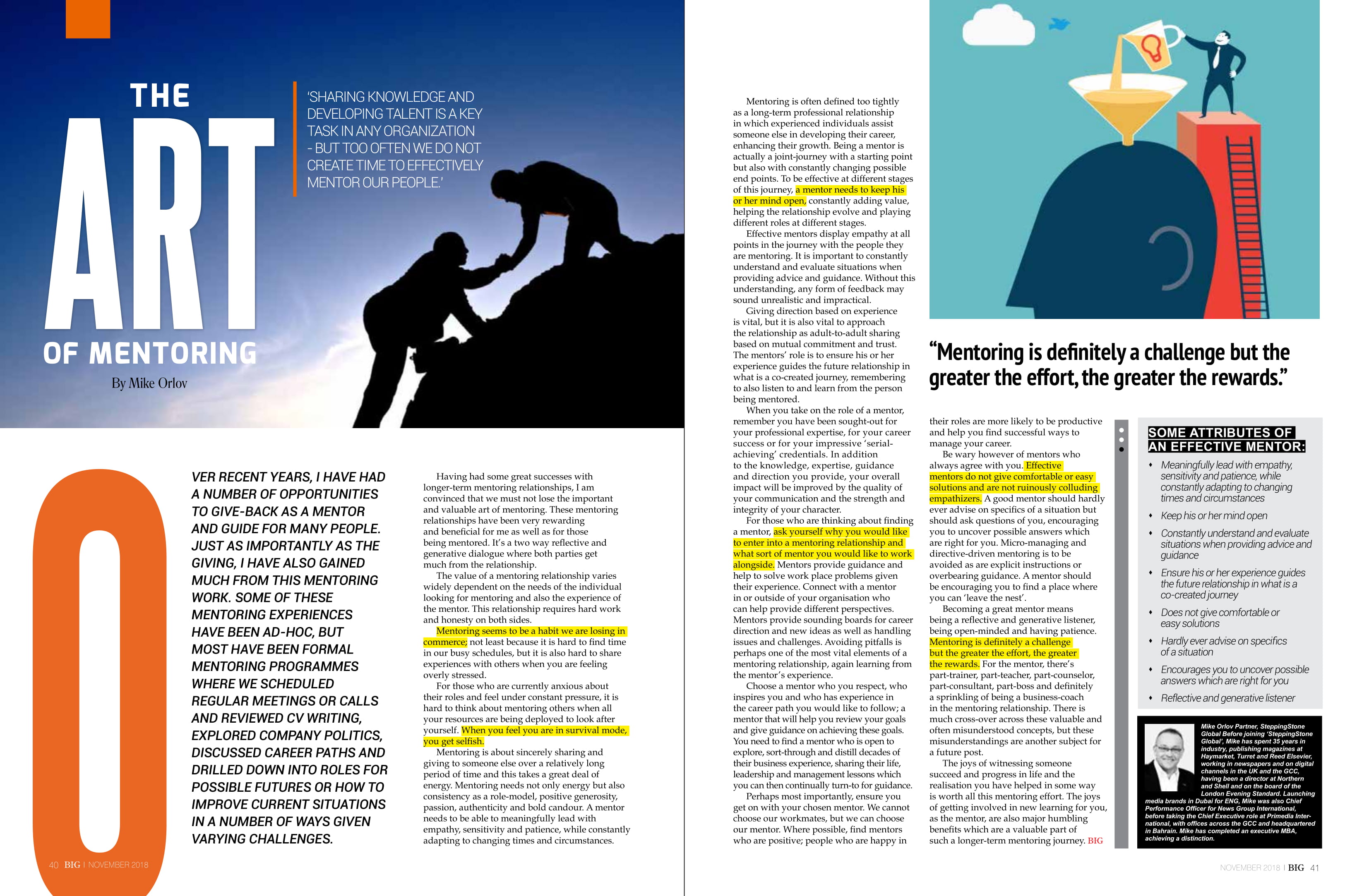
Art of Mentoring
The value of a mentoring relationship varies widely dependent on the needs of the individual looking for mentoring and also the experience of the mentor. This relationship requires hard work and honesty on both sides.
Mentoring seems to be a habit we are losing in commerce; not least because it is hard to find time in our busy schedules but it is also hard to share experiences with others when you are feeling overly stressed.
For those who are currently anxious about their roles and feel under constant pressure, it is hard to think about mentoring others when all your resources are being deployed to look after yourself. When you feel you are in survival mode, you get selfish.
Mentoring is about sincerely sharing and giving to someone else over a relatively long period of time and this takes a great deal of energy, consistency as a role-model, positive generosity, passion, authenticity and bold candour. A mentor needs to be able to meaningfully be involved with empathy, sensitivity and patience, while constantly adapting to changing times and circumstances.
Being a mentor is a joint-journey with constantly changing possible end points. To be effective at different stages of this journey, a mentor needs to keep his or her mind open, constantly adding value, helping the relationship evolve and playing different roles at different stages.
Effective mentors display empathy at all points in this journey with the people they are mentoring. It is important to constantly understand and evaluate situations when providing advice and guidance. Without this understanding, any form of feedback may sound unrealistic and impractical.
It is also vital to approach the relationship as adult-to-adult sharing, based on mutual commitment and trust. The mentors’ role is to ensure their experience guides the future relationship in what is a co-created journey, remembering to listen to and learn from the person being mentored.
When you take on the role of a mentor remember you have been sought-out for your professional expertise, for your career success or for your impressive, ‘serial-achieving’ credentials. In addition to the knowledge, expertise, guidance and direction you provide, your overall impact will be improved by the quality of your communication and the strength and integrity of your character.
For those who are thinking about finding a mentor, remember mentors provide guidance and help to solve workplace problems given their experience. Connect with a mentor in or outside of your organisation who can help provide different perspectives. Mentors provide sounding boards for career direction and new ideas as well as handling issues and challenges. Avoiding pitfalls is perhaps one of the most vital elements of a mentoring relationship, again learning from the mentor’s experience.
Perhaps most importantly, ensure you get on with your chosen mentor. We cannot choose our workmates, but we can choose our mentor. Where possible, find mentors who are positive; people who are happy in their roles are more likely to be productive and help you find successful ways to manage your career.
Be wary however of mentors who always agree with you. Effective mentors do not give comfortable or easy solutions and are not ruinously colluding empathisers. A good mentor should hardly ever advise on specifics of a situation. Micro-managing, directive-driven mentoring is to be avoided as are explicit instructions or overbearing guidance; a mentor should be encouraging you to find a place where you can ‘leave the nest’.
Mentoring is definitely a challenge but the greater the effort, the greater the rewards. For the mentor there’s part-trainer, part-teacher, part-counsellor, part-consultant and part-boss and definitely a sprinkling of being an executive-coach in the mentoring relationship; much cross-over on these valuable but much miss-understood concepts.
